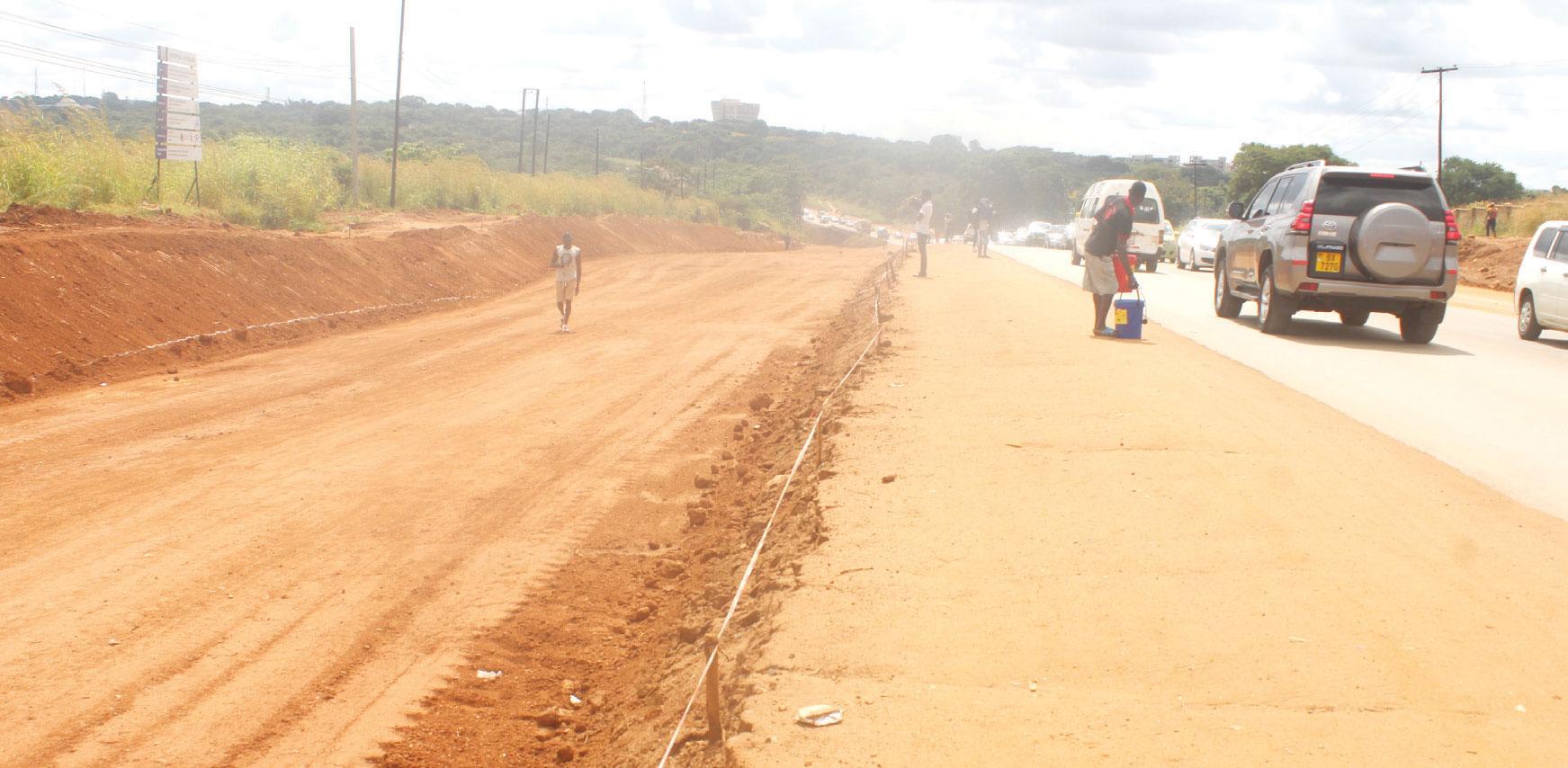Africa-Press – Malawi. Engineers working on the six lane Kenyatta- Mzimba Road project in Lilongwe have said they are not sure when the project will be completed as the works continue to face a number of challenges.
Engineer Paul Kulemeka said on Thursday in an exclusive interview on the sidelines of the signing ceremony of the financing agreement for the project that there is likelihood that the project cost may also increase following its delays and recent rise of construction materials after the realignment of the kwacha with other currencies in April last year.
The Kenyatta road project was initially estimated to cost K19 billion while the Mzimba Street project was pegged at K9.8 billion. President Lazarus Chakwera launched the project in August 2021 and it was expected to finish by the end of this month.
Among other challenges, the project is facing scarcity of forex, which has affected importation of construction materials such as bitumen and steel and delayed relocation of services such as water pipes and electricity power lines.
“Scarcity of fuel in August and September 2022 also led to more delays in the project,” Kulemeka said.
The Kenyatta six-lane road which is being constructed by China Civil Engineering Corporation commenced on September 15, 2021 and was given a period of 18 months but it will miss the deadline.
With just few days to the completion deadline, progress report indicates the road project is at 27.5 percent while the Mzimba Street is at 20 percent. Kulemeka said the challenges being faced makes it difficult for the contractor to peg a timespan outright as to when the road can be completed.
“We are doubting because other than the challenges I have highlighted before, utility companies will have to relocate their pipes, mainly water pipes, electricity poles and power lines. So those are being relocated by utility providers Escom and Lilongwe Water Board.
“The problem though is that the materials that are to be used in the relocation are not available in the country. That’s where the uncertainty is coming from because they are not sure when the materials will come,” Kulemeka said.
Lilongwe Water Board recently said it needed K5.9 billion and got K3 billion from Treasury for water bill arrears from ministries, departments and agencies. It further said it contributed K1.5 billion to the exercise.
Escom on the other hand said it needed K2.5 billion to relocate its power lines. It added that it had secured the funds but getting the materials was a challenge. Minister of Transport Jacob Hara acknowledged the challenges but expressed hope that the project will soon be completed.
“So many things happened along the way. There was devaluation of the kwacha and prices of goods have been going up at an exponential level, way beyond the devaluation itself, so those are some of the things that we need to factor in.
“We also have a major issue at the moment as some of the contractors have not fully taken over the sites because of water pipes, electricity lines and all those issues coming into play. When the contractor is on site for a longer period than they were intended to be, they charge more,” Hara said.
Roads Fund Administration chairperson Matthews Chikankheni said despite missing the deadline, there is hope that the project would be fast-tracked following the K34.5 billion that private financial institutions have pumped into the project.
“Standard Bank Malawi as a joint lead arranger is expected to pump K21 billion into the project. Old mutual will contribute K11 billion and Continental Asset Management will contribute K2.5 billion,” Chikankheni said.
At the official signing ceremony the Minister of Finance Sosten Gwengwe hailed the financial institutions for the support, asking other institutions to emulate the gesture.
“Our local resources can do this; it is possible for local institutions to fund such big road projects,” Gwengwe said. However, infrastructure development engineer Washington Chimuzu has faulted government and, contractor for poor planning on the project.
“Ideally, the relocation of services such as pipes and electricity poles should have been done after the Environmental and Social Management Plan (ESMP) was awarded and proof of funding was given.
“It may still have been possible for this activity to be done concurrently with other activities such as construction of the new bridge, bush clearing and others. The current challenges are generally as a result of poor planning and poor coordination between the stakeholders involved. The project requires strong leadership and all financial resources so as to bring it back on track,” Chimuzu said.
For More News And Analysis About Malawi Follow Africa-Press






